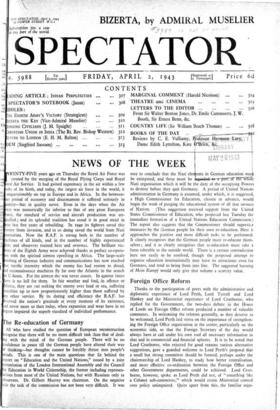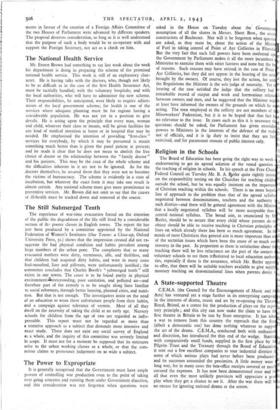Foreign Office Reform
_ Thanks to the participation of peers with the administrative and diplomatic experience of Lord Perth, Lord Tyrrell and Lord Mulkey and the Ministerial experience of Lord Cranborne, who replied for the Government, the two-days debate in the House of Lords on Foreign Office reform produced a number of valuable comments. In welcoming the reforms generally, as they deserve to be welcomed, Lord Perth laid stress on the importance of strengthen- ing the Foreign Office organisation at the centre, particularly on the economic side, so that the Foreign Secretary of the day would always have-at call under his own roof all necessary information in that and in commercial and financial spheres. It is to be noted that Lord Cranborne, who rejected for good reasons various alternative suggestions, gave a guarded welcome to Lord Perth's proposal that a small but strong committee should be formed, perhaps under the chairmanship of Lord Hankey, to study how better centralisation, and more effective co-ordination between the Foreign Office and other Government departments, could be achieved. Lord Cran- borne, however, spoke, as Lord Perth did not, of " something like a Cabinet sub-committee," which would retain Ministerial control over policy unimpaired. Quite apart from this, the familiar argu-
ments in favour of the creation of a Foreign Affairs Committee of the two Houses of Parliament were advanced by different speakers. The proposal deserves consideration, so long as it is well understood that the purpose of such a body would be to co-operate with and support the Foreign Secretary, not act as a check on him.



























